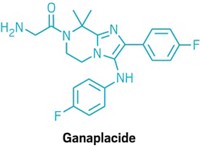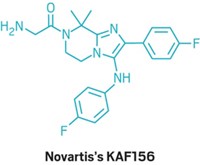Advertisement
Grab your lab coat. Let's get started
Welcome!
Welcome!
Create an account below to get 6 C&EN articles per month, receive newsletters and more - all free.
It seems this is your first time logging in online. Please enter the following information to continue.
As an ACS member you automatically get access to this site. All we need is few more details to create your reading experience.
Not you? Sign in with a different account.
Not you? Sign in with a different account.
ERROR 1
ERROR 1
ERROR 2
ERROR 2
ERROR 2
ERROR 2
ERROR 2
Password and Confirm password must match.
If you have an ACS member number, please enter it here so we can link this account to your membership. (optional)
ERROR 2
ACS values your privacy. By submitting your information, you are gaining access to C&EN and subscribing to our weekly newsletter. We use the information you provide to make your reading experience better, and we will never sell your data to third party members.
Biological Chemistry
Veterinary Drug Might Work To Treat Human River Blindness
Closantel, used to treat sheep and cattle infected with liver flukes, could combat tropical disease caused by a nematode
by Stu Borman
February 22, 2010
| A version of this story appeared in
Volume 88, Issue 8
Researchers have discovered a possible human use for the drug closantel, currently used to treat sheep and cattle infected with liver flukes. Christian Gloeckner and Kim D. Janda of Scripps Research Institute and coworkers find that closantel might be effective against onchocerciasis, which is also known as river blindness (Proc. Natl. Acad. Sci. USA, DOI: 10.1073/pnas.0915125107). The tropical disease currently affects 18 million people worldwide, mostly in Africa, and is caused by a nematode that is transmitted to people via black flies. The sole practical treatment for river blindness is ivermectin, which Merck has donated freely to all who need it since 1988. However, resistance to ivermectin is emerging, and new medications are needed. The Scripps group screened a panel of approved drugs from the Johns Hopkins Clinical Compound Library for inhibitors of chitinase, an essential enzyme in the nematode’s life cycle. They identified closantel as a potent inhibitor of the enzyme and found that it had promising effects on treated worm larvae. The research team hopes to begin clinical testing of closantel for treating river blindness.





Join the conversation
Contact the reporter
Submit a Letter to the Editor for publication
Engage with us on Twitter